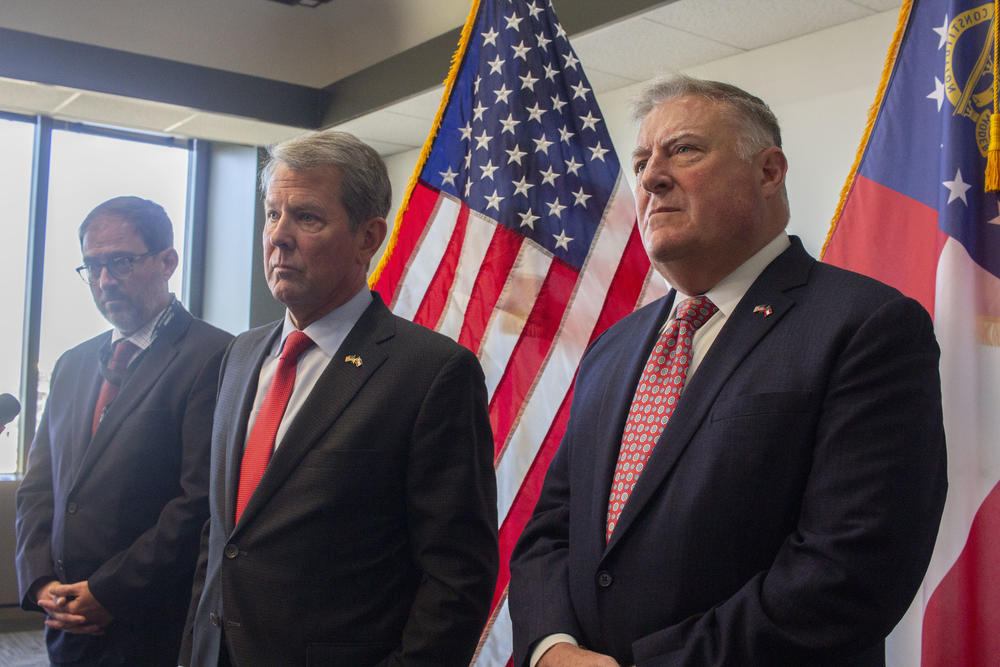
Caption
From left to right, Department of Community Health Commissioner Russel Carlson, Georgia Governor Brian Kemp and Insurance Commissioner John King at a public meeting Monday, Aug. 19, 2024, on the Patients First Act.
Credit: Sofi Gratas/GPB News

